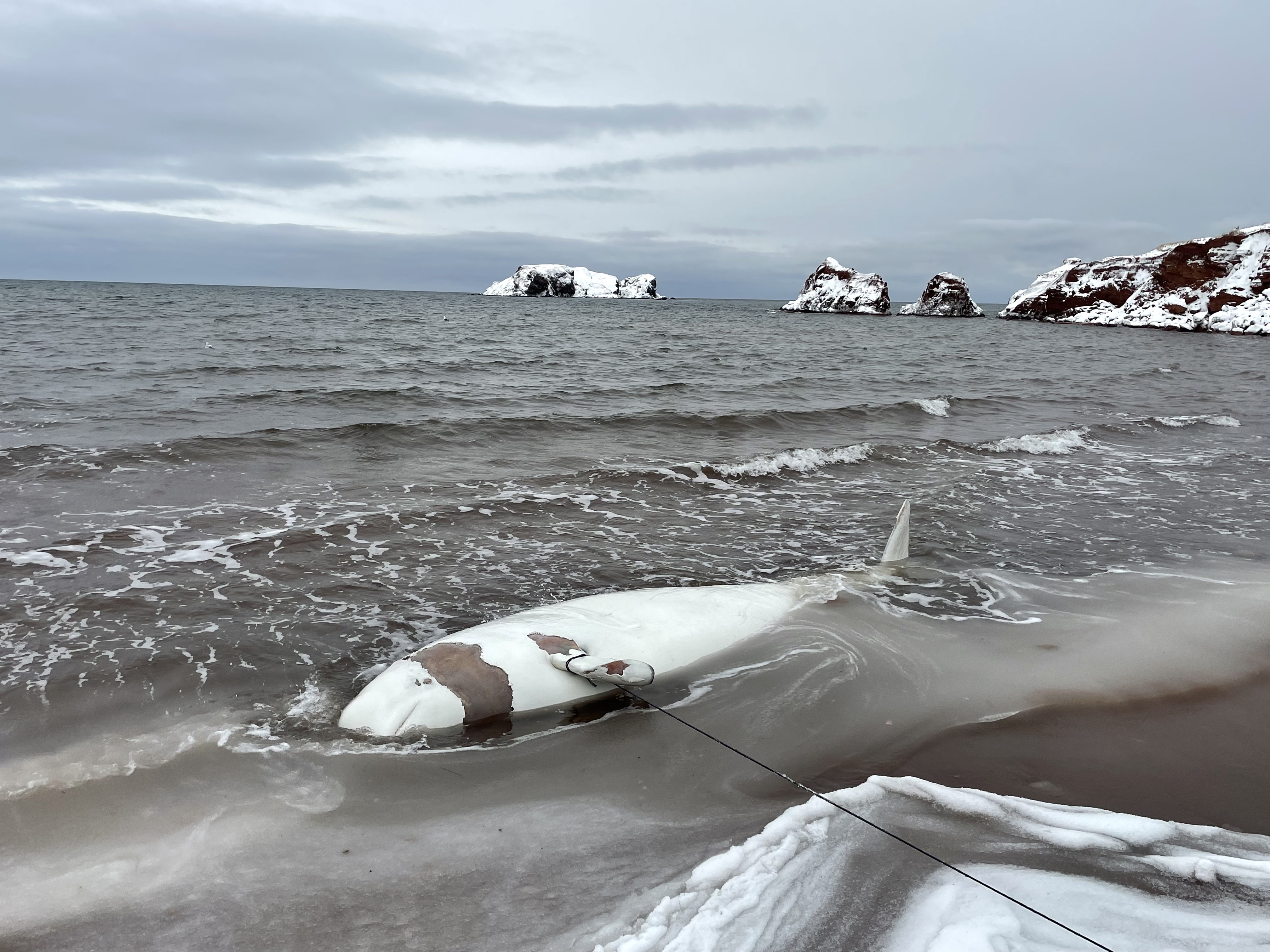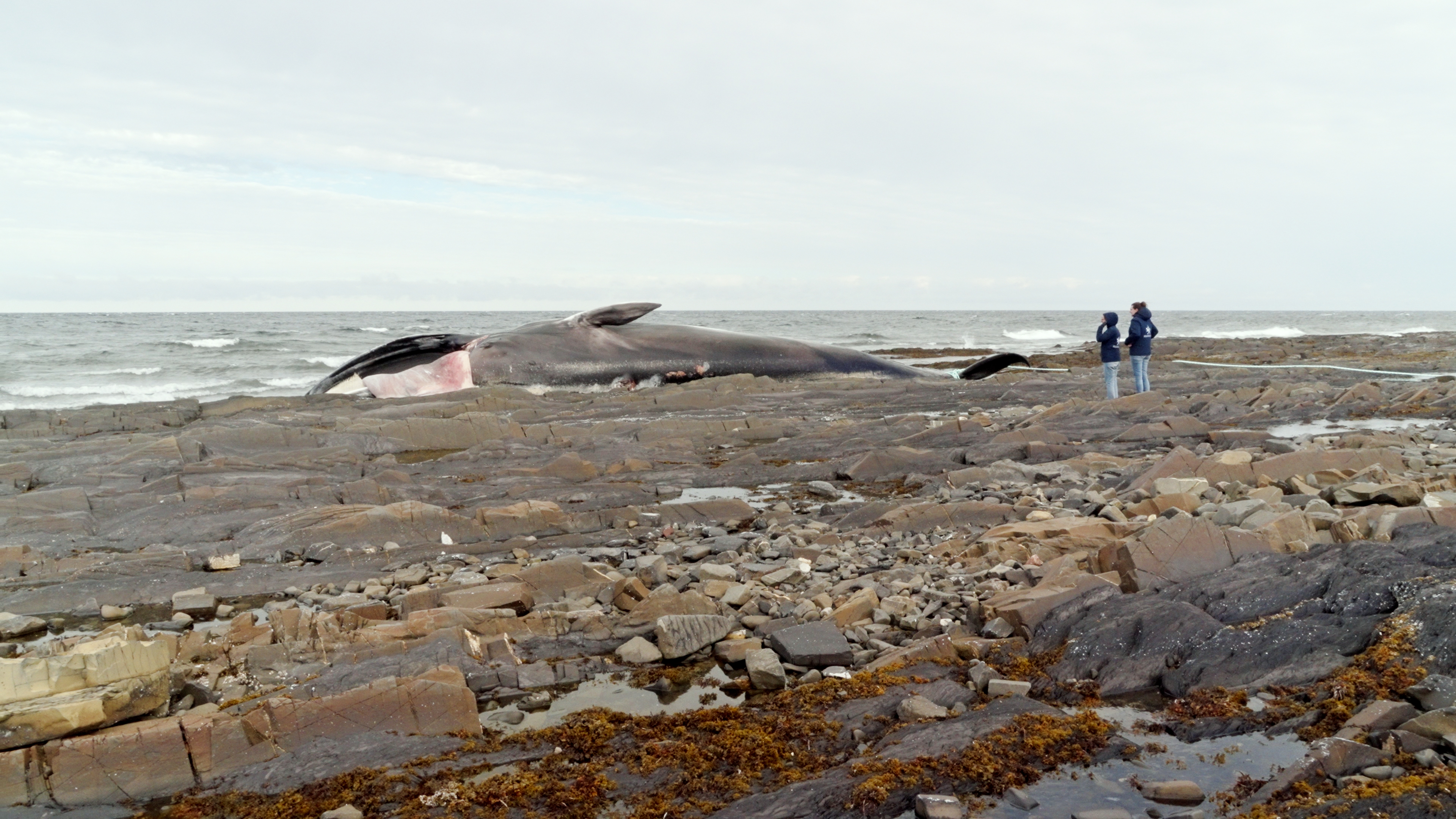A rare occurrence in the St. Lawrence; researchers of the Quebec Marine Mammal Emergency Response Network confirmed this week that the carcass seen drifting off Mont-Louis in the Gaspé Peninsula on October 29 was that of a juvenile blue whale.
The blue whale is an endangered species. It is therefore critical that each carcass be documented. Moreover, the fact that it was a young animal raises the level of interest; a mere 23 calves have been seen in the St. Lawrence River in 35 years of research.

It was an observer on board a fishing vessel plying the Estuary in the heart of the seaway who noticed the whale carcass floating on the surface, over half its body submerged. According to the marine biologist, it was a minke whale. It was the size of the whale – estimated to be roughly half the length of his 20-metre boat – that misled him. Photos sent to the Network this week confirmed that it was a blue whale. Richard Sears of the Mingan Island Cetacean Study (MICS) even questioned whether it could be a first-year calf.
The fact that the fresh carcass was at the heart of the seaway suggests that this whale may have been victim of a collision with a ship. This is impossible to confirm, however, as no obvious markings were documented. Ship strikes are real threats to the whales of the St. Lawrence. An analysis performed by MICS of the St. Lawrence blue whale photo-ID database has revealed that at least 5% of individuals show markings of run-ins with ships.
No blue whale carcasses have been reported on shore as of late; as a result, it is impossible to further document this incident. This situation underscores the importance of validating cases such as these in real time, since had it been possible to confirm the species when the carcass was first discovered, specialized teams could have been dispatched to sea to acquire data on the incident. The whale could even have been towed to undergo a necropsy at the Université de Montréal’s faculty of veterinary medicine. If you find a dead or struggling marine mammal, please contact 1-877-7baleine. The call centre team will respond and ensure that it has the most accurate picture of the situation possible. A response plan will then be implemented, depending on the species and the type of case.





